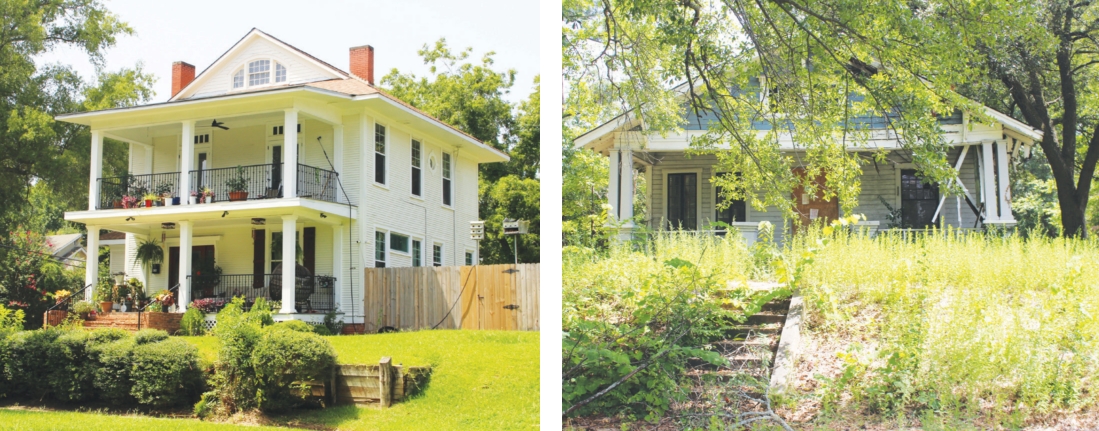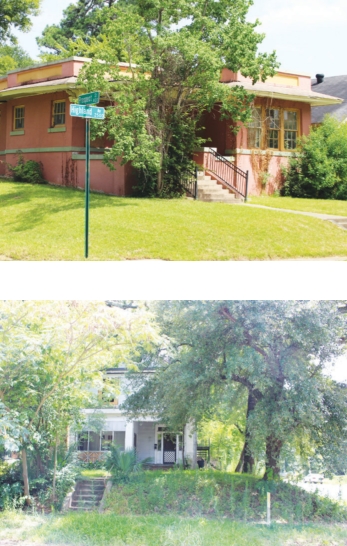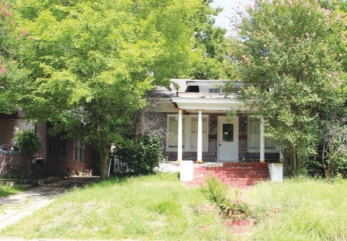Revitalizing Historic Highland

Lovingly cared-for homes in the Highland neighborhood like this one offer motivation for others to see the potential for revitalizing the area.
The Highland Neighborhood Association and RHH fighting blight in neighborhood, see opportunity
The original plan was for April Dahm, living in East Texas, to raise her family in Austin. But when Dahm’s husband had trouble finding work, he turned his attention across the border and landed a job with the state of Louisiana.
“As soon as he was hired, I started researching Shreveport-Bossier,” Dahm said.
“I fell in love with Shreveport. I loved the history. I found Highland on the Chamber of Commerce website. It checked all the boxes. It’s historic. It has a great location, and it was diverse.”
Dahm has lived in the Highland neighborhood for almost 20 years and is president of the Highland Neighborhood Association (HNA). The HNA has partnered with Revitalize Historic Highland (RHH), which has a mission statement of using “revolving funds to protect and promote buildings, landscapes and sites important to the diverse heritage of the historic Highland neighborhood by acquiring endangered properties then acquiring purchasers willing and able to rehabilitate them. The proceeds from each sale will be reinvested into another property purchase.”
Architect Christopher Coe is RHH’s president. He’s from Shreveport-Bossier and moved back five years ago after 33 years in midtown Los Angeles.
“I spent 33 years in my car. I didn’t spend 33 years living in Los Angeles. I spent 33 years living in my car,” he said. “When I made the decision to come back to my hometown, the reason I came back is because it was a nicely scaled town, and I knew I didn’t have to spend my life living in my car. And I was not going to live 15 miles from town, where I was dependent on my car. That’s not how you live in a city.”
Dahm and Coe have a vested interest in revitalizing Highland. They’ve made the area their home. In fact, Coe bought a house “in a not-so-great part of Highland. … I took that house from its death knell, restored it, added onto it, rebuilt it, and I live in it. I made an investment in Highland, so obviously the greater good of the neighborhood is important to me.”
Both homeowners admit their area needs help.
“You can drive around and see there is blight within the neighborhood,” Dahm said. “It’s over the last 10 years that I’ve seen it grow. That is definitely an issue. We have a lot of out-of-state owners, mostly who are landlords who buy adjudicated property or use Highland simply as an investment and don’t even think about the people who live here. … It breaks my heart, and it mostly breaks my heart because I care about the people living in those blighted properties. There are some properties in Highland that people should not have to be paying rent. They should not be living there.”
The RHH, which has a 15-member volunteer board of directors, is in the process of raising money for two purposes. One is to buy properties. The other is to hire a full-time executive director, who will receive a salary and benefits.
“We know people are interested,” Coe said. “We know people are willing. We know people are willing to give money. We know they are willing to give time. We certainly know there is opportunity. There’s housing stock available to us. We just need to find an executive director who can help us start executing the mission.”
But even without a paid person leading the way, the RHH has been working to secure funds.
“There are many private foundations in Shreveport of people who have done well. We’ve been meeting with them, and we have some commitments.”
Those 15 RHH board members are also expected to contribute.

Beautifully maintained and restored properties may be only a few houses away from decay and neglect.
“[They] are obligated to help with some funding, whether that is monetary donations or in-kind services, or they raise money through obtaining their own donations from their own network, but also major donations through foundations.”
Coe recognizes Highland is one of many Shreveport neighborhoods that have deteriorated. But the work has to begin somewhere.
“We’re starting in Highland, but this model can certainly be replicated in Cedar Grove, Allendale, Queensboro, and in fact, it’s done that. We have two people who are our senior advisors who are very famous preservationists and have created revolving funds in North Carolina, Macon, Ga., Knoxville, Tenn., and they have been incredibly successful. So, it’s not like we are inventing this wheel. This wheel already exists. This idea of a revolving fund geared toward historic neighborhoods already exists, and it works.”
Those who live in Highland are undoubtedly partial and don’t have to think long about what makes their part of town special.
“It’s got a great scale to it,” Coe said.
“It has a huge tree canopy. The streets are scaled to just about the right size. It’s very walkable. You can walk to the store if you need to. I can walk to work. My office is a block away from my house. Those are all the great things any city has, and that’s what’s nice about Highland.”

Where some may see distressed properties, others see opportunities to rehabilitate a property to call home.

Dahm likes Highland’s location, location, location.
“I’m two minutes to downtown,” Dahm said. “I’m on the interstate. I can go east to west on I-20 or north to south on I-49 in minutes. The location is great. We have wonderful parks. Our parks have gotten better. It just feels like a real community. We have a canopy of trees. I feel safe here.”
The importance of restoring Highland lies in a dire prediction Coe made — one he hopes doesn’t come true.
“[Highland] is the last physical link to downtown. If we lose Highland, we lose downtown, and frankly, we lose Shreveport.”
The revitalization of historic Highland won’t happen overnight. However, one thing Coe doesn’t have to work on is a vision.
“The vision is actually easy to visualize.
You can walk and drive all through Highland, and you can go three houses and it’s fantastic and then the next three house are not so great. … We’re trying to make it all great. We’re trying to bring it back to what it could be.”
To learn more about RHH, visit revitalizehistorichighland.org.
